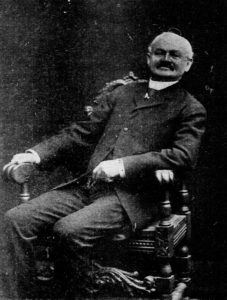 In honor of Black History Month, we are honoring key members of the African American community who have made a lasting impact on the financial industry.
In honor of Black History Month, we are honoring key members of the African American community who have made a lasting impact on the financial industry.
Robert Reed Church led an extraordinary life of grit, gut-instinct and ultimately glory.
Son of a slave and a river boat captain, Church rose to such social and financial prominence that he has continued to wield influence long after his death 109 years ago.
While working as a porter, he survived both a shipwreck and capture by Union soldiers during the Civil War. Dropped off by them in Memphis, he began building his fortune by purchasing and successfully managing a saloon. During the Memphis Race Riot, he was shot and left for dead outside his own establishment while his assailants ransacked the place – smashing bottles, breaking furniture and stealing cash and merchandise.
He not only survived the assault, he vowed to rebuild in the same spot and, from there he launched a career that made him a millionaire and transformed the city he loved. He stayed in Memphis when nearly everyone else fled the city during a Yellow Fever epidemic, then he purchased the property they left behind. Among his holdings was a tract of land along Beale Street on which he built a large auditorium that later hosted world-famous entertainers and several U.S. presidents. His development also included property he had landscaped into a park with a playground.
Following that epidemic, Memphis lost the majority of its tax base, so Church stepped up and became the first citizen to buy a bond for one thousand dollars to restore the City Charter.
He helped found the first black-owned and operated bank in Memphis and avoided a run on it during the 1907 Panic by placing bags of money in its windows with signs assuring depositors that he had adequate reserves.
He built a mansion that remained in his family until 1953 when it burned to the ground in what newspapers called an act of revenge on the part of then Memphis Mayor “Boss” Crump for the Church family’s black voter rights activism.
The most prominent philanthropist in the city during this lifetime, Church gave generously to charities, local schools, social and civic organizations. He died in 1912, but his family members have continued his legacy of entrepreneurship and civic duty.